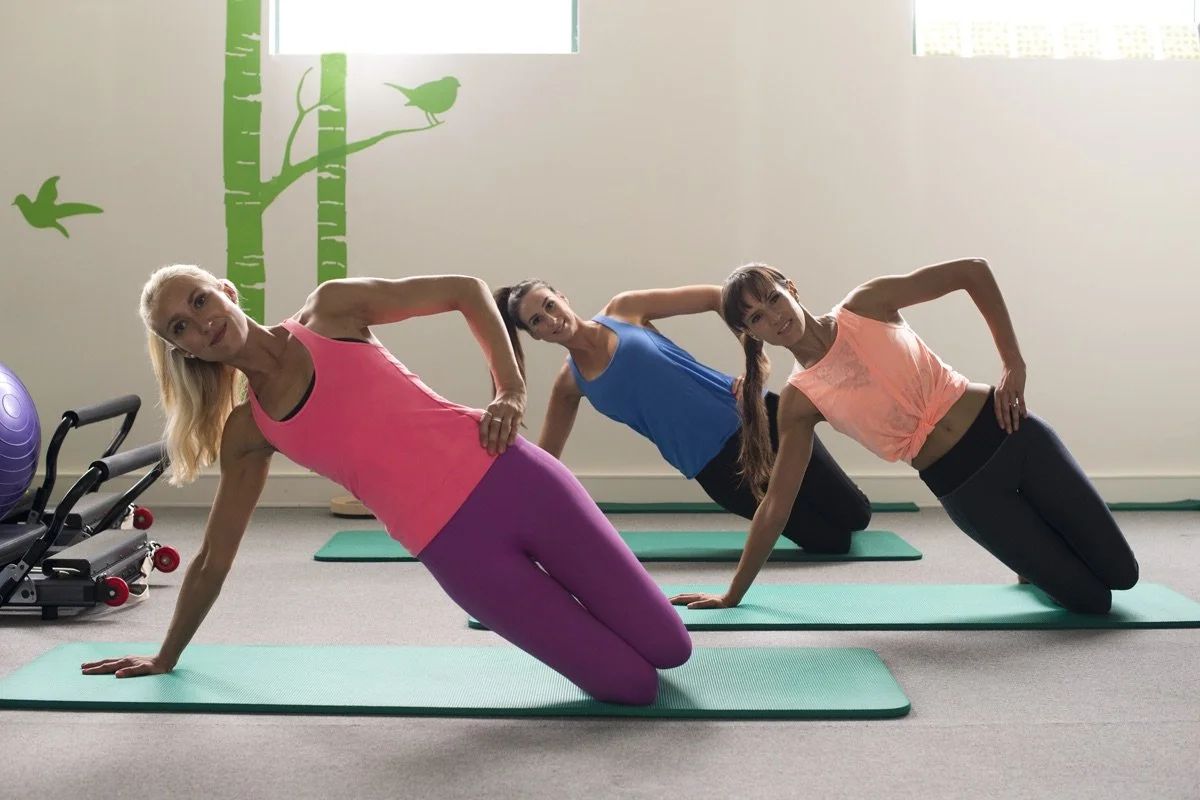The Benefits of Pilates for Runners: Introducing Our New Partnership With APPI
The Benefits of Pilates for Runners: Introducing Our New Partnership With APPI
At Oregon Running Clinic, we are always looking for evidence-based, runner-specific tools that help our community perform better, stay injury-free, and feel more connected to their bodies. That’s why we’re thrilled to announce our new partnership with APPI — the Australian Physiotherapy & Pilates Institute — and to offer our patients and clients an exclusive 10% monthly discount on APPI TV memberships (use code appioregonrunning10)
With APPI TV, you can access world-class, physiotherapy-designed Pilates classes from the comfort of your own home or wherever your training takes you.
Why Pilates Is a Game-Changer for Runners
Pilates has long been recognized for improving strength, mobility, and overall movement quality — all critical for healthy, efficient running. But research continues to back up its performance benefits as well.
A 2018 study found that trained runners who completed a 12-week Pilates program improved their 5K time by an average of 2.42 seconds and demonstrated better running economy and lower metabolic cost compared to runners who only trained by running. This means Pilates helps you run faster, while using less energy.
Here’s why it works so well:
1. Core Strength = Better Running Mechanics
Pilates strengthens the deep stabilizing muscles of the core, including the lumbar spine and pelvis. Maintaining good posture and lumbopelvic control is essential for efficient running mechanics.
Dr. Jen Davis explains:
“About 70% of running-related injuries have a proximal mechanism — meaning they originate around the lumbopelvic region and center of mass. When runners don’t coordinate energy well between the upper and lower body, especially through the core, they fatigue faster and their running economy suffers. Pilates is one of the best tools we have to fix this.”
2. Improved Hip, Knee & Ankle Mobility
Pilates enhances joint mobility in the hips, knees, and ankles — the joints runners rely on most. Improved mobility reduces the risk of common injuries such as:
IT band syndrome
Shin splints
Patellofemoral pain
Achilles tendinopathy
Plantar fasciitis
Tibialis posterior tendon issues
Hip labral irritation
3. Stronger Glutes & Rotational Control
Runners often underestimate how much rotational control is required for efficient forward motion.
Many injuries stem from excessive hip internal rotation and pelvic drop. Pilates strengthens the hip "rotator cuff" — the small stabilizing muscles that keep the femur centered in the socket.
Strengthening these muscles improves stride efficiency and reduces wasted energy.
4. A More Powerful & Efficient Stride
The precise, controlled movements of Pilates help runners improve muscle activation and timing — essential for producing power without overworking.
The below exercises target the hamstrings, glutes, calves, and deep stabilizers that runners rely on:
Leg circles
Heel raises
Lunges
Bridge variations
Single-leg balance work
5. Mindfulness That Improves Performance
Pilates sharpens mind-body connection. This enhances:
Running form awareness
Mental focus during long efforts
Stress regulation
Real-time corrections in posture and stride
6. Low-Impact Strength + Recovery
Because Pilates is gentle on the joints, it pairs beautifully with high-impact running. It builds strength and mobility without adding training stress — making it ideal for active recovery, base building, and injury prevention.
Why We Chose APPI: A Clinical, Research-Based Pilates Method
APPI isn’t just another fitness-style Pilates program. It is one of the only Pilates approaches in the world developed entirely by physiotherapists.
Dr. Jen Davis shares:
“As a board-certified orthopedic physical therapist and certified Pilates Reformer instructor through the APPI method, I can honestly endorse this organization and have the utmost confidence in the results it delivers for my patients.”
What Makes APPI Different
Created by physiotherapists, not fitness trainers
Backed by a detailed step-by-step exercise progression model
Designed to take someone from injury to full function
Used by more than 70,000 instructors worldwide
Research-based with predictable, consistent outcomes
APPI also offers specialized programming for specific populations — something rarely seen in other Pilates systems. These include:
Pilates for runners
Pilates for osteoporosis
Pre- and post-natal classes
Hypermobility-focused sessions
Women’s health–specific classes
This targeted approach ensures that clients get exactly what they need based on known musculoskeletal patterns in each population.
Why APPI TV Is Such a Valuable Option for Runners
For years, Dr. Davis struggled to find a reliable Pilates resource to refer patients to after completing rehab.
Dr. Jen Davis says:
“When my patients finished physical therapy and wanted to continue Pilates, I often didn’t know where to send them. Studios vary widely and I couldn’t guarantee the quality of instruction. When APPI TV launched, I was ecstatic. I finally had a trusted way to keep my patients progressing with the same level of clinical care they experienced in therapy.”
APPI TV gives you:
On-demand classes you can do anywhere
Progressions appropriate for all levels
Runners-specific programming
Guidance backed by physiotherapy expertise
A safe, consistent system you can rely on
And now you can access this platform at a discount — exclusively through Oregon Running Clinic.
Ready to Add Pilates to Your Running Routine?
Whether you’re recovering from injury, preparing for a race cycle, or simply wanting to improve your efficiency and longevity as a runner, Pilates is one of the most powerful tools you can add to your training.
Get started today: at https://www.appi.tv/. Use code: appioregonrunning10 for 10% off every month
Your body — and your running — will thank you.

